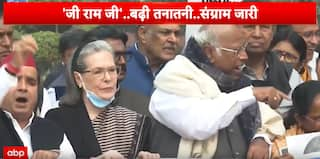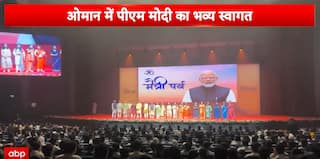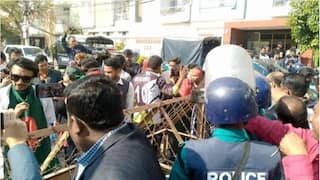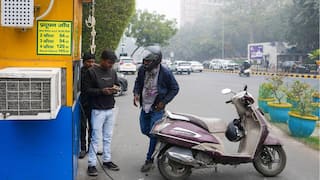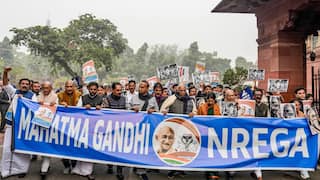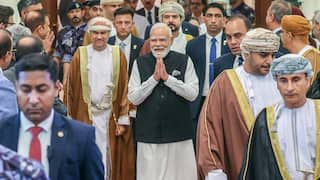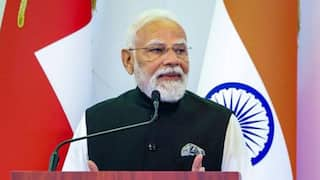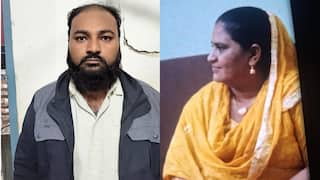Explorer
SC on FGM: Women cannot be "subjugated" to level where they have to "please" their husbands
A bench headed by Chief Justice Dipak Misra, which was hearing a plea seeking a ban on female genital mutilation, also referred to fundamental rights under the Constitution and said a person has the right to "have control over her body".

Image: File
New Delhi: The Supreme Court on Monday questioned the prevalent practice of female genital mutilation (FGM) of minor girls in the Dawoodi Bohra Muslim community, saying the women cannot be "subjugated" to the level where they have to "please" their husbands only. A bench headed by Chief Justice Dipak Misra, which was hearing a plea seeking a ban on the practice, also referred to fundamental rights including Article 15 (prohibition of discrimination on grounds like caste, creed and sex) under the Constitution and said a person has the right to "have control over her body". The bench wondered and said, "when you are thinking of women (then) how can you go into the reverse gear". Attorney General K K Venugopal, appearing for the Centre, said that the government supported the plea against the practice of FGM. "Irrespective of how it (FGM) is performed, the issue is that it violates fundamental rights and more particularly Article 15," the bench, also comprising justices A M Khanwilkar and D Y Chandrachud, said. "This is essential to your control over your genitalia. This is essential to ensure your control over your body," the bench said, adding that women have been subjected to a practice which subjugated them to such a level where they have to "please their husbands" only. The bench then referred to Article 25 and said that it provided "public order, morality and health" as grounds for restraining a person or religious body from practising a religious practice. Senior advocate Indira Jaising, appearing for Masooma Ranalvi, a lawyer who herself has been a victim of the FGM, said the practice of "removal of the clitoral hood" for non-medical purposes of a minor constituted an offence under the IPC and the Protection of Children from Sexual Offences Act (POCSO Act). "Something which has been declared illegal and criminal by the law cannot the essential practice of religion. This constituted an offence under the IPC and the POCSO Act," she said. She said that even the guardians of minor girls cannot give their consent to the FGM for "non-medical purposes" and moreover, Islam says that the laws of the country have to be respected. Dealing with the locus of Ranalvi to intervene, Jaising said she has been the victim of FGM and has been "ex-communicated" from Dawoodi Bohra Muslim community for raising her voice against the "dehumanising practice". She said her plea was restricted to FGM and would not go into male genital circumcision or 'khatna' when Justice Chandracud said that there was some scientific belief on "male genital circumcision". "Under-inclusion may be permissible, but over-inclusion cannot be permitted," the bench said when it was pointed out that the issue of male genital circumcision was not part of the petition. Ranalvi, in her plea, said that she was subjected to the FGM and "all the women in her family, at least 28 of them, have been subject to FGM/Khafz. The intervenor has founded an organization of women, most of whom are survivors of FGM/Khafz called 'WeSpeakOut' which is actively involved in creating awareness on this secret practice." "Intervenor and her family have been socially boycotted by the Head of the Dawoodi Bohra Community. That her father was excommunicated in the late seventies for having joined the Reform movement," the plea said. She also referred to the definition of FGM, given by the World Health Organization and said that should be adopted here and the practice be made an offence under the IPC and the POCSO act. "Frame appropriate law/guidelines for prevention of FGM, procedure of complaining about FGM/ cutting and protection of the survivors of FGM/cutting...," it said, adding "Any person who aids, abets, counsels or procures any girl/woman to carry out such procedure should also be penalised." Senior advocate Rakesh Khanna, appearing for PIL petitioner Sunita Tiwari, said the practice be declared "unconstitutional". The bench would resume hearing today. The court had on May 8 agreed to examine the issues raised by Delhi-based lawyer Sunita Tiwari saying that the practice of female genital mutilation was "extremely important and sensitive". It had issued notices and sought replies from four Union ministries, including the Woman and Child Development, besides Maharashtra, Gujarat, Rajasthan and Delhi where Dawoodi Bohras, who are Shia Muslims, predominantly reside. Tiwari, in her plea, has sought a direction to the Centre and the states to "impose a complete ban on the inhuman practice" of 'khatna' or "female genital mutilation" (FGM) throughout the country. The plea has sought a direction to make FGM an offence on which the law enforcement agencies can take cognisance on their own. It has also sought to make the offence "non-compoundable and non-bailable" with provision for harsh punishment.
Follow Breaking News on ABP Live for more latest stories and trending topics. Watch breaking news and top headlines online on ABP News LIVE TV
Read more

Sayantan Ghosh
Opinion











